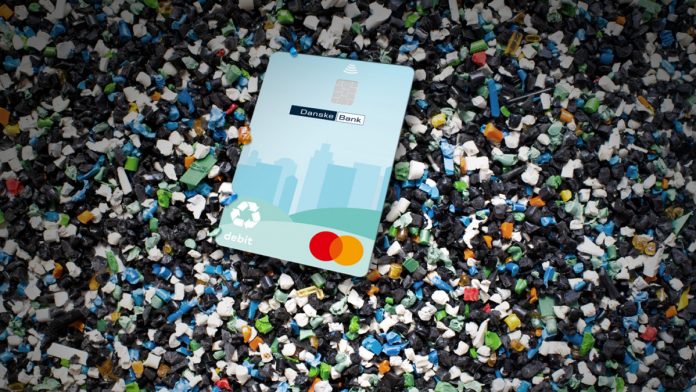Seeking to become more environmentally friendly, Danske Bank has now taken the step to phase out existing payment cards and replace them with new more eco-friendly payment cards made from 86% recycled plastic.
As part of the initiative, the firm will soon commence with issuing payment cards produced from recycled plastic, with the ultimate goal of replacing all existing plastic payment cards currently used by Danske Bank customers.
René Thejsen, Head of Cards & Consumer Payment at Danske Bank, commented: “As part of our social impact agenda, we’re working hard to promote sustainable development and to have a positive impact on society.
“We’re well aware that our more eco-friendly payment cards aren’t going to solve the world’s climate challenges, but they are a small step in the right direction. And it’s yet one more measure in the range of eco-friendly initiatives that Danske Bank is currently implementing.
“We will of course be carrying out thorough testing of the new more eco-friendly cards to ensure that they match the same quality and are as durable as standard plastic payment cards. Once this has been completed, it will be really encouraging to know that also in this area we can contribute to the improved recyclability of plastics – and that by doing so, we can contribute to a better environment.”
It builds on a period of extensive testing, with the first more eco-friendly payment cards now in production, and the first customers can expect to start using them early in the new year. With its new initiative, Danske Bank becomes one of the first banks in the world to issue payment cards made of recycled plastic.
The more eco-friendly payment cards consist of 86% recycled plastic. Among other things, better recycling of plastics means reduced CO2 emissions and less plastic waste ending up in our natural and marine environments. Accordingly, the transition from the standard plastic payment cards to the new recycled plastic payment cards will contribute to a better environment.






















